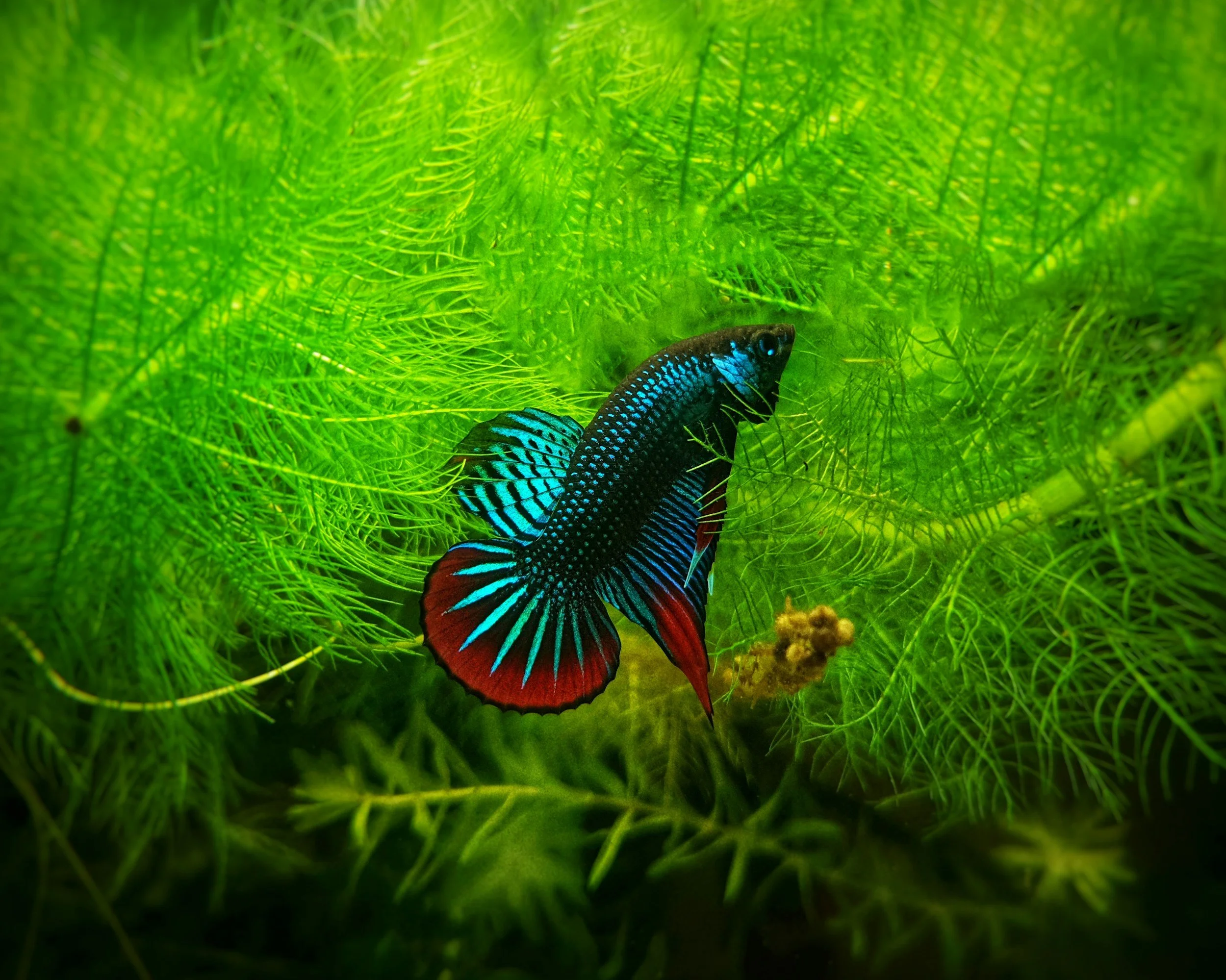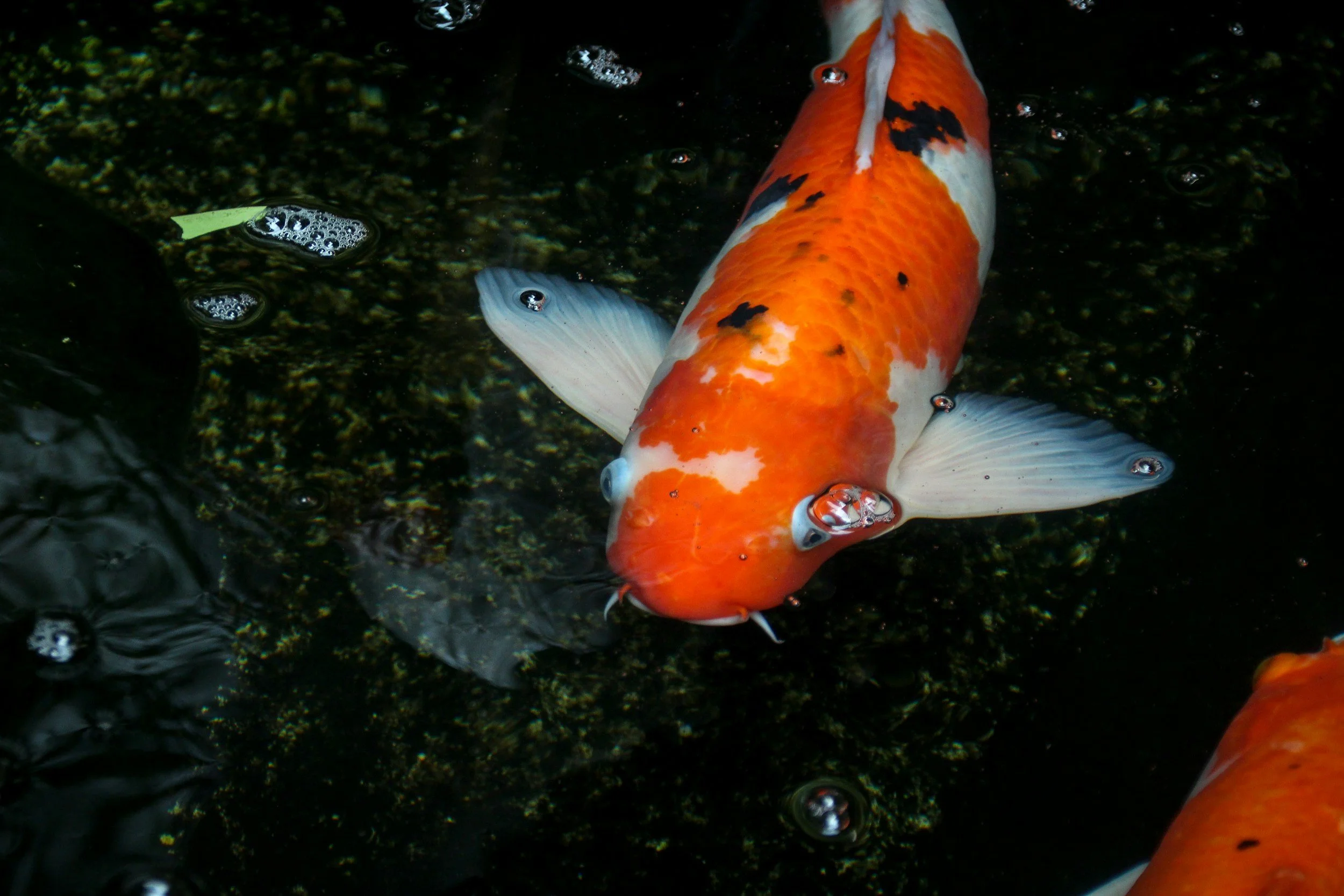Discus Fish
Discus fish (Symphysodon spp.) are a popular species of freshwater tropical fish known for their distinctive shape and vibrant colors. They are native to the Amazon River basin in South America and thrive in slow-moving waters with a warm, acidic environment. Discus fish are characterized by their flattened, circular bodies and can display a range of colors, including blue, green, red, and various patterns.
Discus Fish
These fish are social and typically found in groups in the wild, making them more comfortable in a community tank where they can interact with their own kind. However, they can be sensitive to water quality and conditions, requiring careful attention to temperature, pH levels, and tank maintenance. Due to their specific care requirements, discuses are often considered a challenge for beginner aquarists, but experienced fish keepers appreciate their beauty and behavior.
In terms of diet, discus fish are omnivorous and should be fed a varied diet that includes high-quality flakes, pellets, and freeze-dried or frozen foods such as bloodworms and brine shrimp. Proper nutrition is essential for their growth, health, and coloration.
Breeding discus fish can be rewarding but requires additional knowledge of their requirements and behavior during the mating process. They typically form monogamous pairs and exhibit parental care, which includes protecting and tending to their eggs and fry.
Overall, discus fish are admired not only for their striking appearance but also for their interesting social behaviors, making them a fascinating addition to aquariums for those who are prepared to meet their care needs.
Keeping discus fish offers a variety of benefits for aquarists, whether they are beginners or experienced hobbyists. Here are some key advantages:
Aesthetic Appeal
Discus fish are renowned for their vibrant colors and unique shapes. Their striking appearance can enhance the visual appeal of any aquarium, making them a focal point.
Engaging Behavior
Discus fish exhibit interesting social behaviors, such as swimming together in schools and establishing hierarchies. Observing these interactions can be both entertaining and educational.
Calm Presence
These fish tend to have a gentle demeanor, contributing to a serene atmosphere in the aquarium. Their tranquil movements can be relaxing for viewers.
Compatibility
Discus fish can coexist peacefully with other compatible fish species, allowing for a diverse and dynamic aquarium ecosystem. When carefully selected, tankmates can enhance the overall health and activity of the aquarium community.
Educational Opportunities
Caring for discus fish provides insights into aquatic biology, water chemistry, and ecosystem management. This knowledge can be beneficial for individuals interested in marine biology or environmental sciences.
Breeding Potential
For hobbyists interested in breeding, discus fish are known for their parental care. Watching discus fry grow and develop can be a rewarding experience.
Longevity and Hardiness
When provided with proper care and optimal conditions, discus fish can live for many years, making them a long-term investment in your aquarium hobby.
Therapeutic Benefits
Maintaining an aquarium has been shown to reduce stress and promote mental well-being. The presence of discus fish can enhance these therapeutic effects, creating a peaceful environment.
In conclusion, keeping discus fish can be an enriching hobby that offers visual beauty, fascinating behaviors, and numerous learning opportunities, making them an excellent choice for aquarium enthusiasts.
How to Care for Discus Fish
Caring for discus fish requires attention to their specific needs related to water quality, temperature, diet, and tank environment. Here are essential guidelines to ensure their health and well-being.
1. Tank Setup
Size: Aim for a minimum of 50 gallons for a small group of discus, as they are large and require ample swimming space.
Water Conditions: Maintain a pH level between 6.0 and 7.5, with a temperature range of 82°F to 86°F. Stable water conditions are crucial.
Filtration: Use a high-quality filtration system to keep water clean, as discus are sensitive to poor water quality. Ensure gentle water flow.
Substrate: Use a soft substrate, such as sand or fine gravel, to prevent injury to their delicate bodies.
2. Water Quality
Regular Testing: Test water parameters regularly for ammonia, nitrites, nitrates, and pH levels.
Frequent Water Changes: Change 25-50% of the water weekly to maintain cleanliness and remove toxins.
3. Diet
Quality Food: Provide a varied diet, including high-quality flake food, pellets, frozen or freeze-dried food, and live options like brine shrimp.
Feeding Schedule: Feed smaller amounts 2-3 times a day. Discus fish thrive on a diet rich in protein.
4. Tank Mates
Compatibility: Choose tank mates carefully. Ideal companions include other peaceful fish of a similar size. Avoid aggressive or small fish that may be seen as food.
5. Behavior and Socialization
Schooling: Keep discus in groups of at least five to promote natural social behavior. They are communal fish and thrive in a group.
Observation: Regularly observe their behavior. Stress or illness can manifest as changes in activity levels or feeding habits.
6. Health Maintenance
Signs of Stress/Disease: Watch for signs of stress, such as loss of appetite, color fading, and abnormal swimming patterns.
Quarantine New Fish: Always quarantine new fish for at least two weeks before introducing them to the main tank to prevent disease spread.
By following these guidelines, you can create a suitable environment for your discus fish, ensuring they live a healthy and vibrant life.





